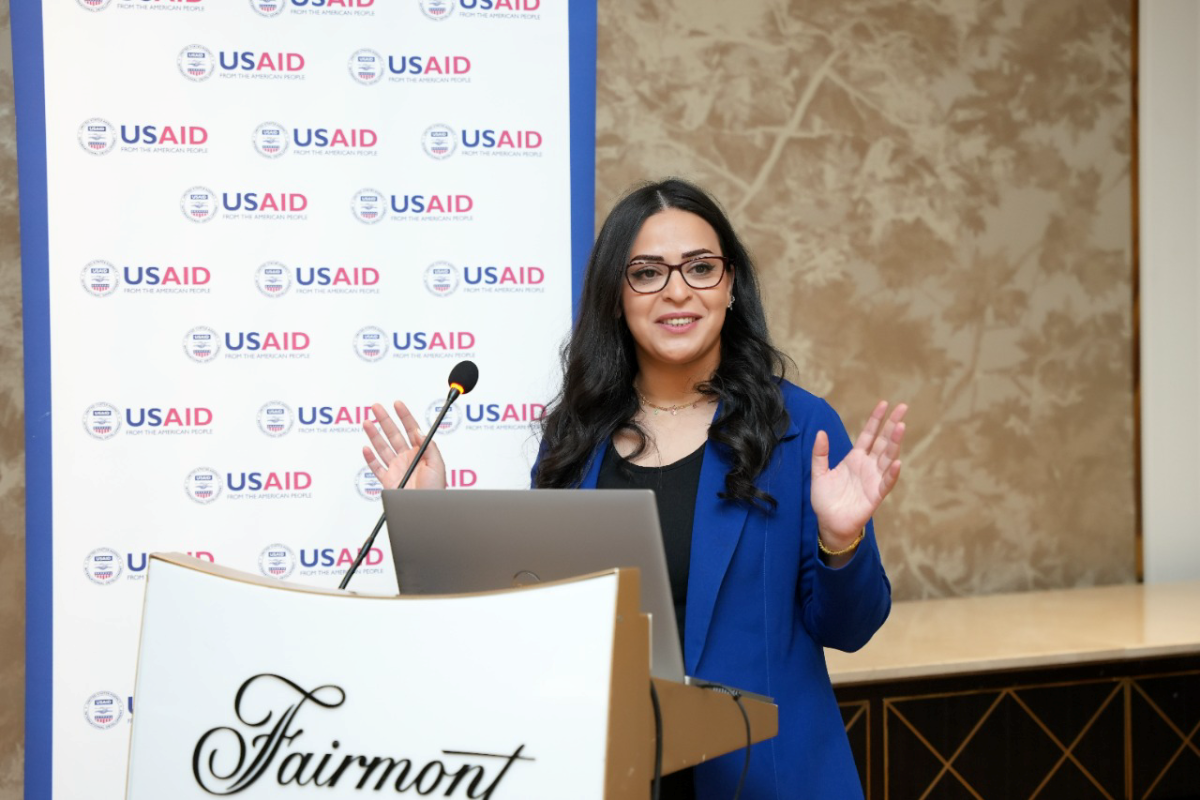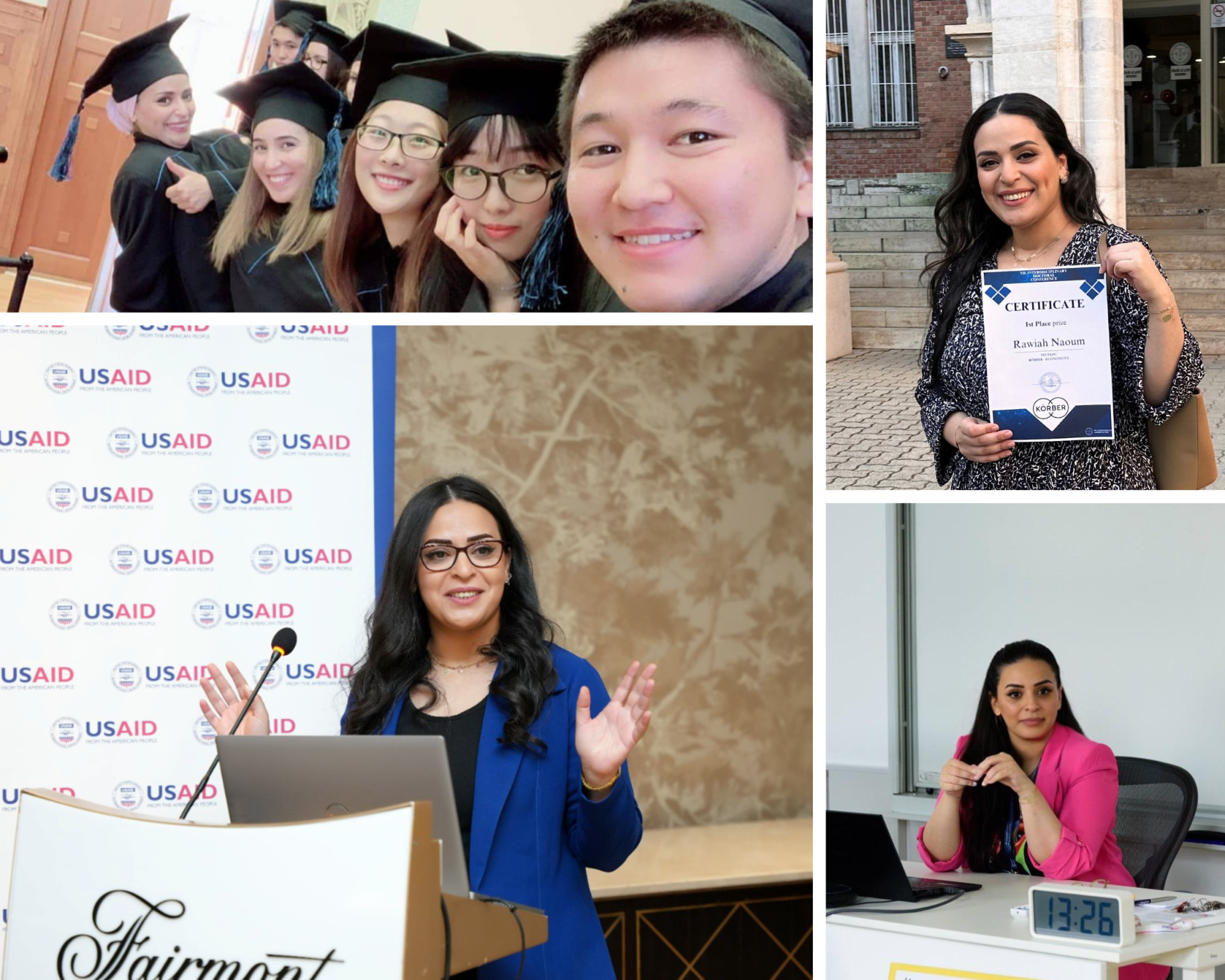From Jordan to Pécs: Rawiah’s Journey as an International Student and Global Leader

When Rawiah F. Naoum decided to pursue further studies beyond her successful career in civil engineering in Jordan, she was motivated by a strong desire to expand her skillset and grow as a leader.
Her decision to complement her technical background with a master’s degree in Management and Leadership at the University of Pécs opened new doors and shaped her life in ways she never expected. Today, she is a PhD candidate and a DEI (Diversity, Equity & Inclusion) Program Manager, advocating for inclusive work cultures across the globe.
Her journey is one of self-discovery, resilience, and the courage to embrace new opportunities.
Why Pécs? Finding a New Path
Back in Jordan, Rawiah had already begun transitioning from technical engineering into business development and marketing. But something was missing. “I felt like I lacked essential management skills,” she shared. “I was handling business responsibilities, but I needed a stronger foundation. That’s when I started looking for opportunities to study abroad.”
The University of Pécs caught her attention—not just because of the program, but because of its welcoming atmosphere and international environment. “I liked that it wasn’t in the capital. The university’s presentation felt personal, and it aligned with what I was looking for.”
She enrolled in the Management and Leadership program, bridging her civil engineering background by attending a few bachelor-level business courses as well.
An Unexpected Spark in the Classroom
Her very first class was with Dr. Tiszberger Mónika—a moment that left a lasting impression. “Before even thinking about doing a PhD, I remember walking into her class and thinking, ‘This is what I want to do someday.’ She sparked something in me.”
Rawiah was struck by how different the teaching style was compared to her previous academic experiences. “In my country, professors are very strict. They deliver the lecture and leave. But here, professors are more like coaches. They care about your understanding, and they create space for interaction.”
She also admired the creativity and openness in the classroom. “Some professors would use YouTube, short films, or real-world case studies. It wasn’t just theory—it was applied learning, and that made all the difference. It encouraged creative thinking. I actually looked forward to the lectures.”
This teaching style helped her discover skills she didn’t know she had, including public speaking and presentation. “There was one professor who told me I should come back and do a PhD. That moment planted a seed.”
She appreciated the variety in evaluation methods as well. “Not everyone is good at written exams. Here, we had oral exams, presentations, group projects. It gave every student the chance to succeed based on their strengths. That kind of flexibility really builds your confidence.”
One of the highlights of her master’s program was the quality of guest lecturers. “They brought in professionals from the industry who shared practical knowledge. That helped me visualize where I wanted to work and what skills I still needed to develop.”
Because of her positive experience, Rawiah now actively recommends the University of Pécs to students from Jordan and other countries. “I tell students—if you’re unsure about your future path, this is a great place to find it.”
Pursuing a PhD and Building a Global Career
After completing her master’s degree, Rawiah returned to Jordan for a year to work, but the desire to go further in academia remained. She later returned to Pécs to pursue her PhD, focusing on Artificial Intelligence in Human Resource Management—particularly at the intersection of AI and inclusive practices.
But it wasn’t all smooth sailing. “PhD life is a different world,” she said. “You’re no longer just a student—you’re a researcher, expected to create new knowledge. It’s challenging and, at times, overwhelming.” She credits her supervisors, especially Dr. Zsuzsanna Vitai, for keeping her grounded and encouraging resilience during moments of doubt. “She told me it’s okay to fail, as long as you get back up. That mindset helped me push forward.”
During this time, she also began working remotely for Includovate, an Australian research institute, where she now serves as a DEI Program Manager. Her team spans continents—from Australia to Latin America—collaborating across cultures and time zones.
“It’s a truly international team. Everyone is so different in background, yet incredibly aligned in values,” she said. Her work now blends policy, education, and training on inclusive practices, drawing heavily from her academic background and personal experiences.
Challenges and Growth as a Female International Professional
Despite her successes, Rawiah acknowledges the unique challenges she has faced as an international woman in leadership roles. “Most of the difficulty wasn’t from others—it was from myself. I had to unlearn internal biases and be more patient, especially in remote international settings.”
Even with years of experience in DEI, Rawiah stresses that inclusivity is never a finished product. “Being inclusive isn’t just a job—it’s a personal practice. It requires reflection, humility, and a willingness to keep learning.”
This self-awareness has shaped her approach to leadership and continues to influence her research and professional projects. She sees her background as both an advantage and a responsibility—to help open doors for others walking similar paths.
Advice for Students: Try, Learn, Grow
When asked what advice she’d give to students and young professionals, Rawiah offered the following insights:
“Don’t wait to feel ready. Just try things. Even if it’s not your dream job, it’s a step forward.”
“Use LinkedIn. Most of my job opportunities came through it. Reach out, network, ask questions—you never know what can come of it.”
“Don’t be afraid to fail. Whether it’s a job, an exam, or a project—failure is part of learning.”
“Talk to your professors. They can help you see yourself in ways you haven’t considered yet.”
Her final thought sums up her journey best:
“You don’t have to start big. Just start. Be open, stay curious, and trust your journey.”
Moment of her journey:

